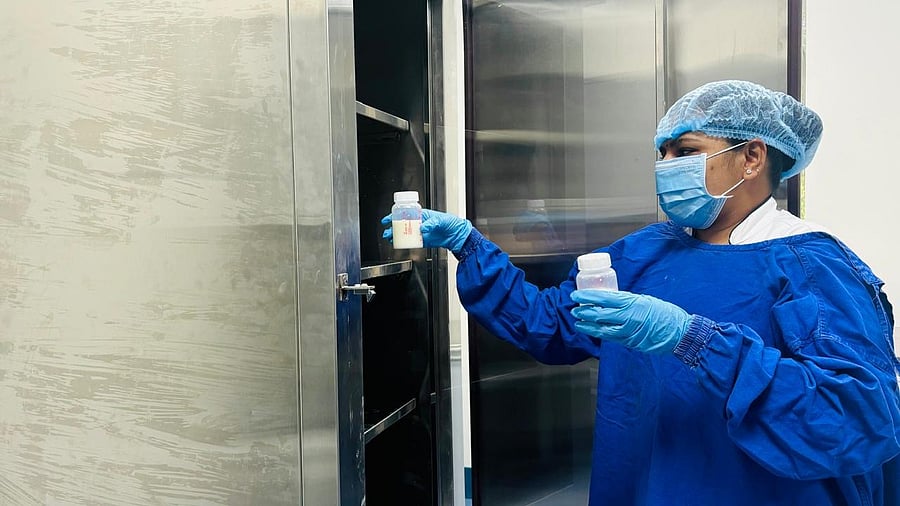
Credit: Special Arrangement
A new human milk bank will begin operations on March 17. It is a collaboration between Rotary Bangalore Midtown, MCKS (Master Choa Kok Sui) Trust Fund - Karnataka Chapter and St John’s Medical College Hospital, Koramangala.
Mother’s milk is essential to the survival of new born babies, especially those that are pre-term or underweight. In Bengaluru, there are just three or four other milk banks, says Palani Loganathan, president, Rotary Bangalore Midtown. “The supply does not meet the demand,” he notes.
Most are forced to use formula milk, which results in gastrointestinal issues. Sometimes, it can be fatal, he adds.
The bank, located at St John’s, will function similar to a blood bank, says Dr Shashidhar A, a neonatalogist. Lactating mothers will be screened for health issues, and the milk will be collected through a breast pump. The milk will then be pasteurised and stored in a freezer at -20 °C in BPA-free bottles. BPA (bisphenol A) is a chemical compound found in plastic. The milk can be stored for up to 6 months from the time it is expressed. When there is a need, the required amount will be transferred to a refrigerator until it thaws. “Once it is thawed, it has to be consumed within 24 hours,” says the doctor.
In India, 15% of babies born annually are preterm, while 25% are underweight, he shares. St John’s sees roughly 200 births a month. On average, 4-5 babies (usually
in the NICU) are in need of milk from an outside source per day.
“Apart from pre-term and underweight babies, babies whose mothers have physical and mental health issues, or whose mothers died at child birth are some of the other beneficiaries,” he explains.
Palani Loganathan says that babies deprived of human milk can benefit significantly even if 20-30% of their milk requirements come from donor human milk.
The bank will charge a fee for processing, but not for the product, Dr Shashidhar clarifies.